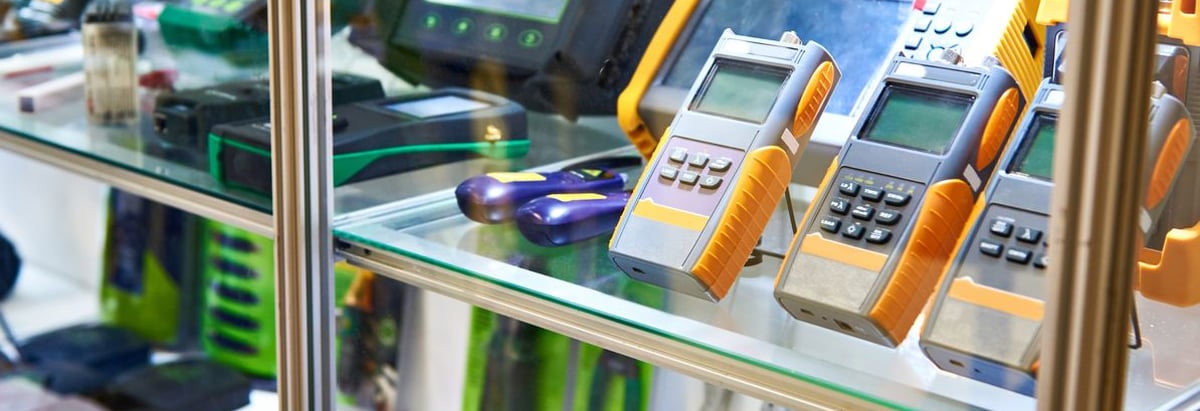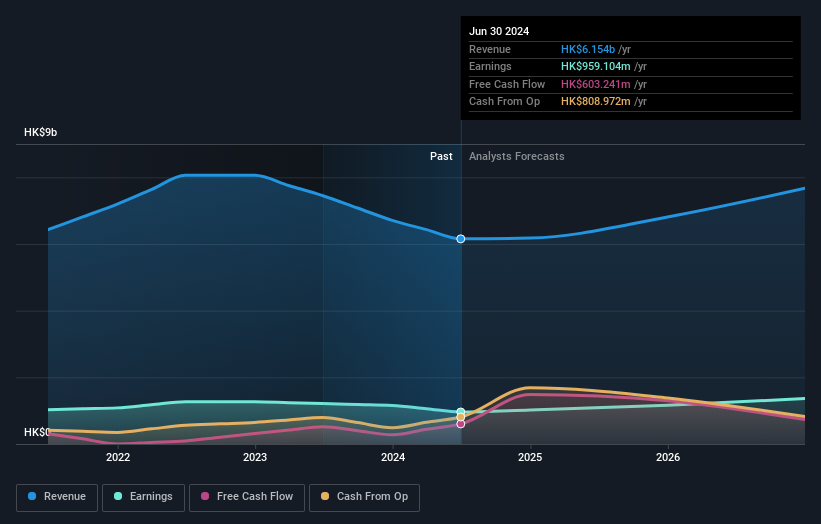A great week that adds to PAX Global Technology Limited's (HKG:327) one-year returns, institutional investors who own 36% must be happy

Key Insights
- Significantly high institutional ownership implies PAX Global Technology's stock price is sensitive to their trading actions
- The top 3 shareholders own 57% of the company
- Using data from company's past performance alongside ownership research, one can better assess the future performance of a company
Every investor in PAX Global Technology Limited (HKG:327) should be aware of the most powerful shareholder groups. With 36% stake, institutions possess the maximum shares in the company. In other words, the group stands to gain the most (or lose the most) from their investment into the company.
And things are looking up for institutional investors after the company gained HK$425m in market cap last week. The one-year return on investment is currently 0.2% and last week's gain would have been more than welcomed.
Let's take a closer look to see what the different types of shareholders can tell us about PAX Global Technology.
View our latest analysis for PAX Global Technology

What Does The Institutional Ownership Tell Us About PAX Global Technology?
Many institutions measure their performance against an index that approximates the local market. So they usually pay more attention to companies that are included in major indices.
We can see that PAX Global Technology does have institutional investors; and they hold a good portion of the company's stock. This can indicate that the company has a certain degree of credibility in the investment community. However, it is best to be wary of relying on the supposed validation that comes with institutional investors. They too, get it wrong sometimes. It is not uncommon to see a big share price drop if two large institutional investors try to sell out of a stock at the same time. So it is worth checking the past earnings trajectory of PAX Global Technology, (below). Of course, keep in mind that there are other factors to consider, too.

We note that hedge funds don't have a meaningful investment in PAX Global Technology. The company's largest shareholder is Hi Sun Technology (China) Limited, with ownership of 34%. Meanwhile, the second and third largest shareholders, hold 13% and 9.1%, of the shares outstanding, respectively. Additionally, the company's CEO Jie Lu directly holds 0.8% of the total shares outstanding.
To make our study more interesting, we found that the top 3 shareholders have a majority ownership in the company, meaning that they are powerful enough to influence the decisions of the company.
While it makes sense to study institutional ownership data for a company, it also makes sense to study analyst sentiments to know which way the wind is blowing. There is some analyst coverage of the stock, but it could still become more well known, with time.
Insider Ownership Of PAX Global Technology
The definition of an insider can differ slightly between different countries, but members of the board of directors always count. Management ultimately answers to the board. However, it is not uncommon for managers to be executive board members, especially if they are a founder or the CEO.
Insider ownership is positive when it signals leadership are thinking like the true owners of the company. However, high insider ownership can also give immense power to a small group within the company. This can be negative in some circumstances.
We can report that insiders do own shares in PAX Global Technology Limited. In their own names, insiders own HK$81m worth of stock in the HK$5.4b company. This shows at least some alignment. You can click here to see if those insiders have been buying or selling.
General Public Ownership
With a 28% ownership, the general public, mostly comprising of individual investors, have some degree of sway over PAX Global Technology. While this size of ownership may not be enough to sway a policy decision in their favour, they can still make a collective impact on company policies.
Public Company Ownership
It appears to us that public companies own 34% of PAX Global Technology. We can't be certain but it is quite possible this is a strategic stake. The businesses may be similar, or work together.
Next Steps:
While it is well worth considering the different groups that own a company, there are other factors that are even more important. For example, we've discovered 1 warning sign for PAX Global Technology that you should be aware of before investing here.
If you would prefer discover what analysts are predicting in terms of future growth, do not miss this free report on analyst forecasts.
NB: Figures in this article are calculated using data from the last twelve months, which refer to the 12-month period ending on the last date of the month the financial statement is dated. This may not be consistent with full year annual report figures.
New: Manage All Your Stock Portfolios in One Place
We've created the ultimate portfolio companion for stock investors, and it's free.
• Connect an unlimited number of Portfolios and see your total in one currency
• Be alerted to new Warning Signs or Risks via email or mobile
• Track the Fair Value of your stocks
Have feedback on this article? Concerned about the content? Get in touch with us directly. Alternatively, email editorial-team (at) simplywallst.com.
This article by Simply Wall St is general in nature. We provide commentary based on historical data and analyst forecasts only using an unbiased methodology and our articles are not intended to be financial advice. It does not constitute a recommendation to buy or sell any stock, and does not take account of your objectives, or your financial situation. We aim to bring you long-term focused analysis driven by fundamental data. Note that our analysis may not factor in the latest price-sensitive company announcements or qualitative material. Simply Wall St has no position in any stocks mentioned.
About SEHK:327
PAX Global Technology
An investment holding company, develops and sells electronic funds transfer point-of-sale products in Hong Kong, the People’s Republic of China, the United States, and Italy.
Flawless balance sheet 6 star dividend payer.
Similar Companies
Market Insights
Community Narratives



